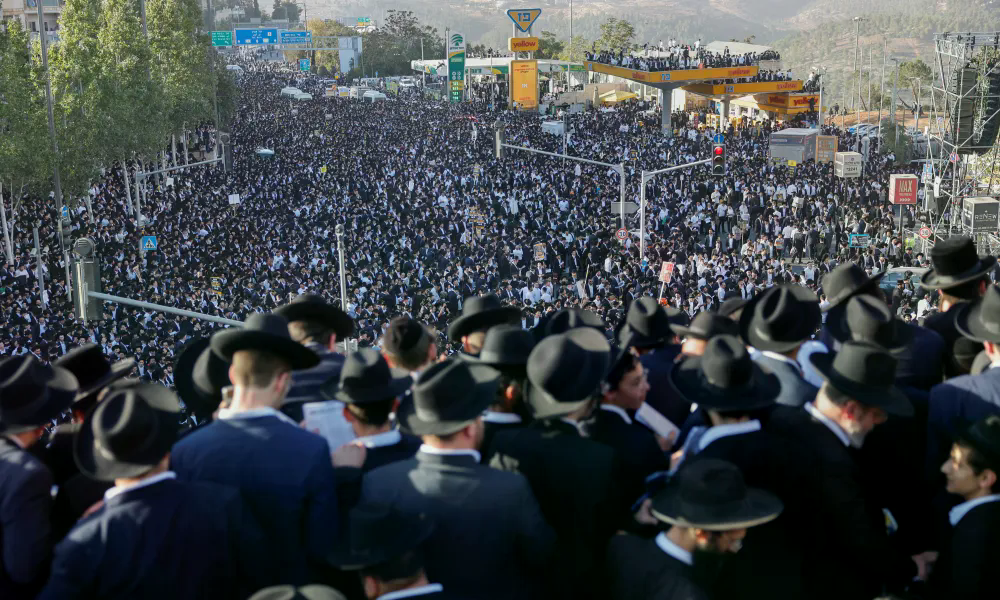
Tens of thousands of protesters gathered in Jerusalem to voice their opposition to the conscription of ultra-Orthodox Jewish individuals into the Israeli military. The demonstration, which took place on Thursday, saw approximately 200,000 participants, predominantly men dressed in traditional black suits and hats, carrying signs that opposed mandatory service. The large-scale march caused significant disruption in West Jerusalem, with traffic coming to a halt and some protesters setting fire to tarpaulin.
To manage the protest, at least 2,000 police officers were deployed. Tragically, one teenager died after falling from a construction site near the demonstration, according to police reports. Despite the incident, the protest remained largely peaceful.
Banners displayed by demonstrators included slogans such as “The people are with the Torah” and “Closing the yeshiva — a death sentence for Judaism.” These messages reflected the deep-seated concerns of the ultra-Orthodox community regarding the potential end of their exemption from military service.
The demonstration followed a series of government actions targeting the ultra-Orthodox population, including the issuance of call-up notices and the imprisonment of several deserters. Shmuel Orbach, a protester, stated that while being sent to military prison was not ideal, he argued that the state should not oppose religious practices within a Jewish country.
The issue of military conscription has long been a source of societal tension in Israel and has become a political challenge for Prime Minister Benjamin Netanyahu during the ongoing conflict in Gaza. Since Israel’s founding in 1948, when the ultra-Orthodox community was much smaller, men who dedicate themselves to the study of sacred texts have been granted an informal exemption from military service.
Ultra-Orthodox Jews constitute 14 percent of Israel’s Jewish population, or about 1.3 million people, with roughly 66,000 men of military age currently benefiting from the exemption. Frustration over this arrangement has increased in recent years, particularly following Israel’s military engagements in Gaza, Lebanon, and Iran since 2023, which have led to a significant rise in military casualties.
In response to growing pressure, Israel’s Supreme Court ruled last year that the military must begin drafting ultra-Orthodox men for service. The court emphasized that without a specific law distinguishing between seminary students and other draftees, the compulsory service system applies equally to all citizens.
This ruling has created instability within Netanyahu’s coalition government. In July, the ultra-Orthodox party United Torah Judaism (UTJ) withdrew from the right-wing coalition, leaving the prime minister with a narrow majority in the Knesset. Efforts to pass a new conscription bill have faced challenges, as both the ultra-Orthodox community and the military seek compromises.
With elections scheduled for late October 2026, Israel is witnessing the emergence of at least 11 new political parties. Netanyahu’s opponents continue to search for strategies to challenge his leadership, as the debate over military service remains a central issue in national politics.


